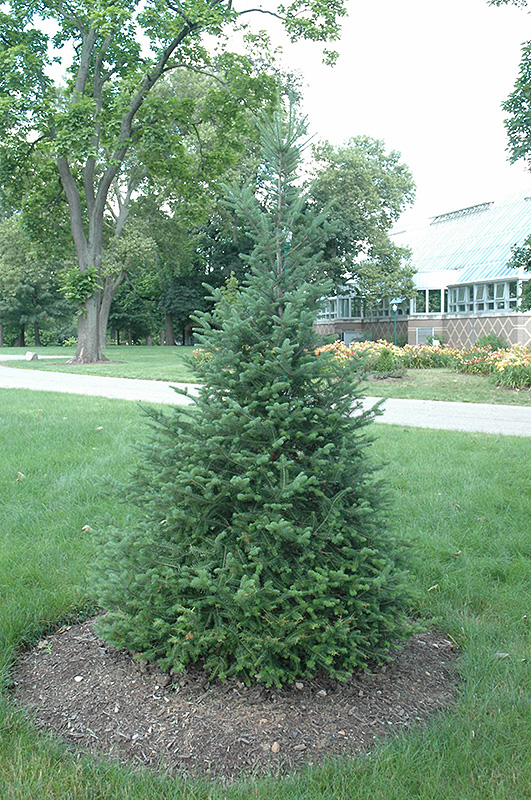Canaan Fir
Abies balsamea 'var. phanerolepis'
Height: 50 feet
Spread: 25 feet
Sunlight:
![]()
![]()
Hardiness Zone: 4a
Other Names: West Virginia Balsam Fir, Bracted Fir
Description:
A delicate spire-like evergreen producing soft dark green needles, very upright and open; will grow in areas not well suited to other firs; resistant to spring frost injury
Ornamental Features
Canaan Fir is primarily valued in the landscape for its distinctively pyramidal habit of growth. It has dark green evergreen foliage. The needles remain dark green throughout the winter. The smooth gray bark adds an interesting dimension to the landscape.
Landscape Attributes
Canaan Fir is an evergreen tree with a strong central leader and a distinctive and refined pyramidal form. Its average texture blends into the landscape, but can be balanced by one or two finer or coarser trees or shrubs for an effective composition.
This tree will require occasional maintenance and upkeep, and should not require much pruning, except when necessary, such as to remove dieback. It has no significant negative characteristics.
Canaan Fir is recommended for the following landscape applications;
- Vertical Accent
Planting & Growing
Canaan Fir will grow to be about 50 feet tall at maturity, with a spread of 25 feet. It has a low canopy, and should not be planted underneath power lines. It grows at a slow rate, and under ideal conditions can be expected to live for 70 years or more.
This tree does best in full sun to partial shade. It is quite adaptable, prefering to grow in average to wet conditions, and will even tolerate some standing water. It is particular about its soil conditions, with a strong preference for sandy, acidic soils. It is quite intolerant of urban pollution, therefore inner city or urban streetside plantings are best avoided, and will benefit from being planted in a relatively sheltered location. Consider applying a thick mulch around the root zone in winter to protect it in exposed locations or colder microclimates. This is a selection of a native North American species.







